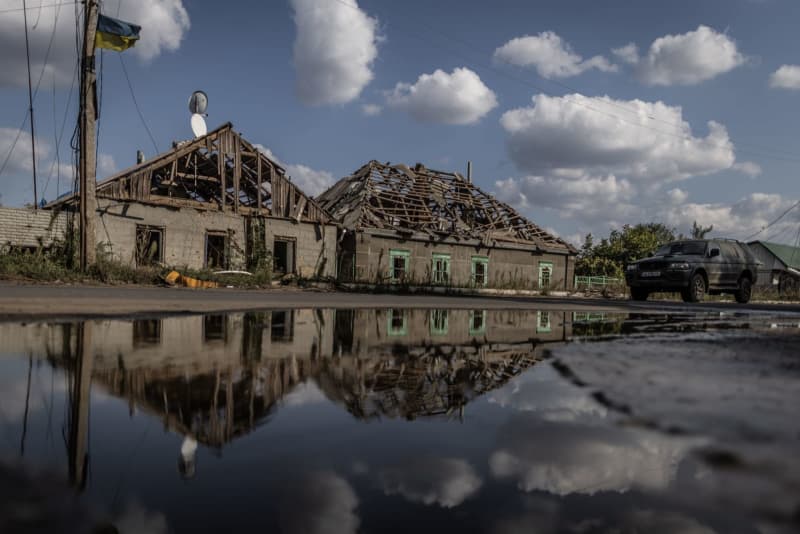A court in southern Russia has sentenced two soldiers to life imprisonment for their involvement in the murder of nine Ukrainian civilians, including two children, in the city of Volnovakha, situated in the Donetsk region of eastern Ukraine. This tragic event occurred approximately one year prior to the sentencing, illustrating the ongoing violence and civilian casualties resulting from the conflict in Ukraine. The findings of the investigation revealed that the defendants entered the victims’ house and utilized silenced weapons to execute members of a family spanning three generations. Despite the gravity of their actions, the soldiers have refuted the charges against them and plan to appeal the court’s decision, as reported by the Russian state news agency Tass.
Initially, the motivation behind the horrific act was reported to be an attempt to obtain vodka, which is prohibited for Russian troops on active duty. However, during the proceedings, the court clarified that the murders were driven by “political, ideological, racist, national, or religious hatred,” highlighting the deeper issues at play in the ongoing conflict. The trial itself was conducted behind closed doors, which raises questions about transparency and the broader implications of the ruling within the context of wartime conduct. The veil of secrecy surrounding the trial may prevent a comprehensive understanding of the motivations and circumstances leading to such violent crimes.
The case presents a stark contrast to the narratives often promoted by the Russian government, which has consistently denied any wrongdoing by its military personnel in Ukraine. Ukrainian authorities have frequently accused Russian forces of committing egregious crimes against civilians, a sentiment echoed by human rights organizations monitoring the situation on the ground. However, the Russian parliament has enacted laws making it a criminal offense to “defame” the military, further complicating the discourse surrounding accountability for war crimes. This legislative environment fosters an atmosphere of impunity and limits the dissemination of critical information regarding military conduct.
While the sentencing of these soldiers is a significant step in recognizing the violent realities faced by Ukrainian civilians, such judgments remain relatively rare and are often shrouded in ambiguity. The unusual nature of a trial revealing the ideological motivations for murder aligns with long-standing Ukrainian claims of systemic injustices committed by occupying forces. Yet, such instances serve as a reminder of the challenges faced by both Ukrainian authorities and international observers in addressing war crimes and ensuring accountability in the face of political and military upheaval.
The international community continues to watch the conflict unfold, and high-profile sentences like those handed down in this case draw attention to the plight of civilians caught in the crossfire. The circumstances surrounding the murders and the subsequent trial may prompt further scrutiny of Russian military operations and behaviors in occupied territories. Human rights advocates have called for greater visibility and transparency in these processes to ensure that justice is served and to prevent further atrocities against innocent civilians.
In summary, the life sentences issued to the two Russian soldiers mark a critical moment in the ongoing discussion about war crimes and accountability within the context of the Ukraine conflict. As narratives about the war evolve, the implications of this trial could resonate beyond Russia, potentially influencing international opinion and policy regarding the conflict. Ultimately, it serves as a potent reminder that the consequences of war extend far beyond the battlefield, affecting the lives and safety of countless civilians.

